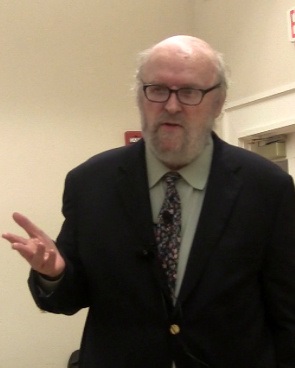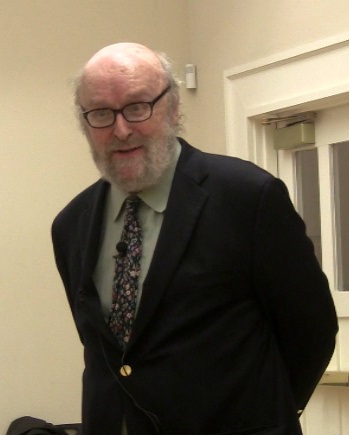"God as Infinite"
Fr. David Tracy

How ought we to think of God? Christians have long believed in the deeply radical idea of God as the Creator of all things visible and invisible, but is God also infinite and does it make a difference if He is?
One of the leading theologians of our time, University of Chicago Professor David Tracy discussed the various meanings of the 'Infinite' as they relate to our understanding of God. He began by drawing a distinction between the modern mathematical concept of infinity and what the 'infinite' meant among the ancients, especially what it meant philosophically for Plato, Aristotle, and Plotinus. For Plato, the ultimate grounding of Reality was what he referred to as "The Good." The Platonic idea of the Good transcends beyond Being--that is, beyond the limits of all existing things--and, therefore, it is beyond our capacities to grasp directly through our powers of reasoning. As a result, this ultimate Good was unknowable except only partially by the divinely-inspired philosopher or Truth-seeker. For Aristotle, infinity was a deep and especially unintelligible imperfection because it lacked the necessary boundary conditions associated with a distinct and, therefore, knowable form. For Plotinus, the ultimate grounding of Reality could be glimpsed and referred to as the all encompassing "Oneness" of Being. The "One" was both simple and an infinite overflowing Good, and yet it was an impersonal (and, therefore, unloving) Good. For early Christian thinkers, these Greek philosophical resources offered only a fragmented and an inadequate image of God as unknowable, inaccessible, unintellible, impersonal and unloving. Not surprisingly, early Christian descriptions of God did not commonly include the infinite as a Divine attribute. Yet as Prof. Tracy explained,
an important theological recasting of the concept of the infinite was completed by St. Gregory of Nyssa (c. 335-395). This Cappadocian Doctor of the Church first recognized that the inherent capacities of the human mind are limited, while God's perfection was better understood as unlimitable: that is, as infinite. St. Gregory's insight, furthermore, was important because it aided the Church in her subsequent thinking not only about the multiple relational qualities and infinite perfections of the Trinity, but also her understanding of how humanity's relationship to the multiple persons of the Trinity was transformed by the Incarnation, Transfiguration, Resurrection, and Pentecostal events, by which the Divine reveals itself not only as beyond form and Being but also as an overflowing and personal Love for all of humanity. For the rest of Prof. Tracy's lecture, see our video archive.

